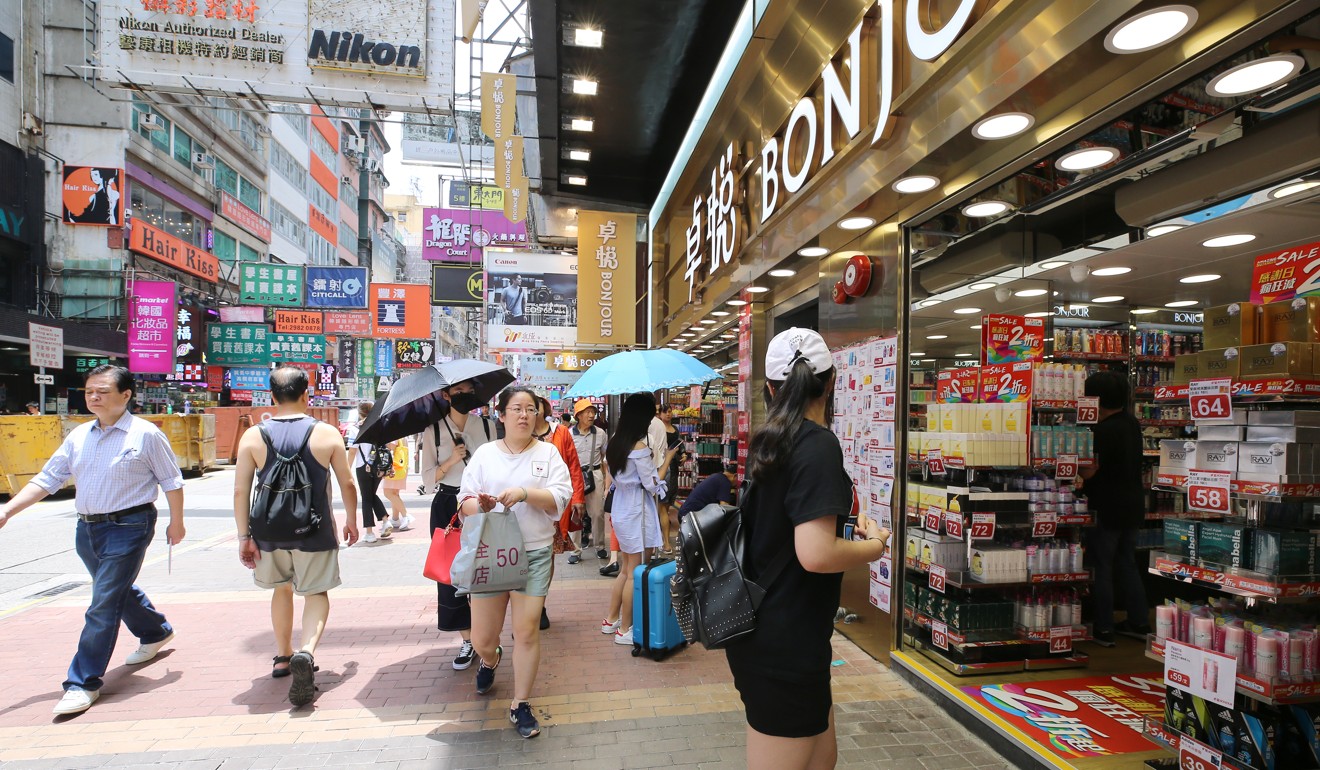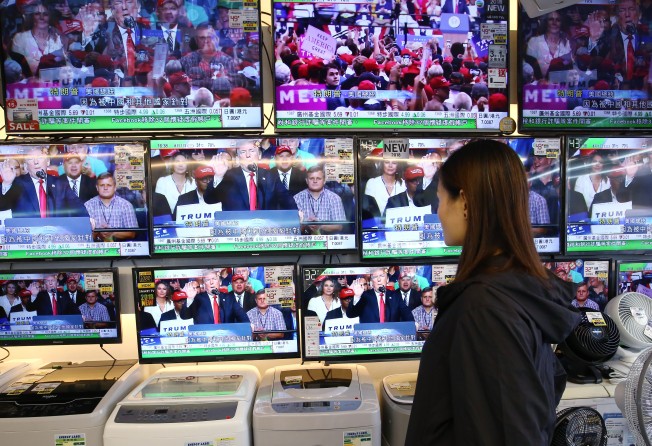
Google tells Hong Kong: traditional approach is not the smart choice, as report reveals a city lagging behind rivals on e-commerce
Tech giant’s Smarter Digital City 2.0 study documenting five sectors including travel and retail shows business is afraid to take chances, and prefers to react rather than innovate

Travel and retail businesses in the city should drive new technological solutions instead of waiting for consumer demands to shift their offerings, Google Hong Kong said.
The global tech giant made the remarks on Wednesday as it unveiled a report titled Hong Kong Smarter Digital City 2.0, documenting the progress of digital development in five sectors – travel, finance, retail, living and people – as well as presenting suggestions.
The study came ahead of Chief Executive Carrie Lam Cheng Yuet-ngor’s annual policy address next week. Hong Kong’s top official is expected to announce initiatives to enhance the city’s advances in innovation and technology.
Commissioned by Google, independent market research company Ipsos carried out in-depth interviews as well as multiple polls, including some targeting businessmen and one focusing on more than 1,500 consumers from Hong Kong, Shenzhen and Guangzhou.

The report revealed only 30 per cent of local residents and corporations believed Hong Kong is a smart city, ranking it third behind Tokyo and Singapore.
Despite local officials racing to create a smart city, drawing on a HK$50 billion (US$6.37 billion) fund to boost the industry, only 14 per cent of those asked thought the government was significantly investing in making Hong Kong a smarter city, it added. The was a decrease of one third from 21 per cent in 2017.
“What holds Hong Kong back? First and foremost is a traditional mindset,” said Leonie Valentine, sales and operations managing director at Google Hong Kong on Wednesday during its media briefing.
Valentine said only 50 per cent of small and medium-sized firms agreed that digital was fundamental to their businesses, 16 per cent less than their counterparts in Shenzhen and Guangzhou.
She said some Japanese traditional retailers that Google had worked with massively transformed their businesses by using new technologies.
“They’re using really innovative technology like augmented reality to make sure that their customers have a better fit of their products,” she said.

The retailers allowed consumers to put their measurements in an app for them to find clothes that can fit them, she said, it helped boost efficiency and cut cost on the return of goods which were in the wrong size for consumers.
The ensuing report revealed the local travel industry had made the most progress among the five sectors, partly fuelled by changes in consumer behaviour. For example, the number of people using smartphones to check in to their flights and navigate during their trip jumped about 10 per cent.
Despite these advances, the study pointed out that only 22 per cent of consumers regarded Hong Kong’s tourism and travel industry as having successfully digitised its services.
It said consumers were still “overwhelmed with crowded and confusing offers” from online travel agencies, hotels and airline companies, with 47 per cent saying price comparisons should be made easier.
Thirty-five per cent of local residents requested better real-time price bidding on flights and hotels to improve their travel booking experience.
“Many travel businesses in Hong Kong are cautiously waiting for more evidence of local consumer demands shifting, rather than directing consumers to new, smarter solutions,” the report stated.
“This wait-and-see approach will not help Hong Kong establish itself as a smart city and transform one of its most four crucial industries.”
Similar problems affected the local retail industry, whose business culture the researchers found to be risk-averse.
This wait-and-see approach will not help Hong Kong establish itself as a smart city
“Rather than consumers being resistant to change, often the reticence stems from the retailers who have delayed or resisted enacting new technologies or initiatives,” the report stated.
It said only 17 per cent of small and medium-sized retailers in Hong Kong had engaged in e-commerce, compared with 46 per cent of their counterparts in Shenzhen and Guangzhou.
Concerns relating to implementation costs were the most common reason the businesses cited for refraining from digitisation.
Looking ahead, the researchers urged small and medium-sized businesses to pitch themselves both offline and online, adding that investment in technology and encouragement of digital interaction could help retailers create a seamless experience for their customers.
“This, in turn, shortens the decision cycle, alleviating uncertainty around product choice, product availability, or concerns around quality and suitability,” the report added.